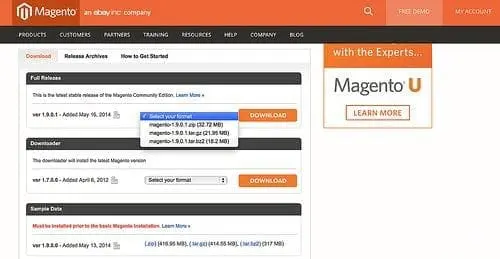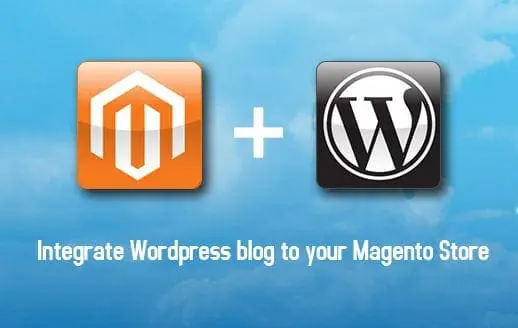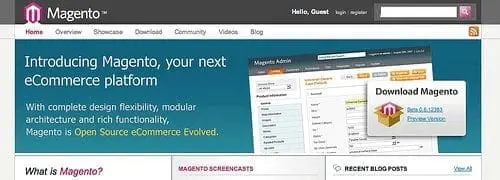If you want to stand the best chance of engaging your target audience and getting them to buy your products, as well as gaining higher search engine rankings, you will need to create interesting and relevant content for your eCommerce website.
Magento’s CMS and Blogging Capability
Whilst Magento’s CMS makes it relatively easy for you to create content pages, if you want to set up a blog for your ecommerce website, you will need to use an extension. Whilst there are a number of great blogging extensions available for Magento (including the Aheadworks Blog extension) you may be better integrating your ecommerce website with a dedicated blogging platform such as WordPress instead.
Integrating Magento with WordPress
Integrating Magento with WordPress is a fantastic solution for retailers that want to benefit from user-friendly content publishing tools and easy order management. Below we have explained how you can make this possible.
Adding a WordPress blog to your Magento store
One of the easiest ways to add a WordPress blog to your Magento store is by using a Magento WordPress integration extension. Although there are a number of free and premium extensions available from the Magento Connect store, we recommend using the one by FishPig. Not only is this Magento WordPress integration extension free to install but it also has the highest number of downloads and much better reviews than its competitors. We’ve also been told good things about MWI about but haven’t tried this as of yet.
To install the extension, you will first need to locate it in the Magento Connect store and navigate to its product page. Click on the install button and login so you can access the extension key. Once you have logged in, it will ask you to read through and accept the terms and conditions. After you have done this, you will be able to copy the extension key.
Another benefit of using this extension is that you will be able to log in to your WordPress blog from your Magento admin panel, making it much easier and convenient to create and update your eCommerce website’s blog posts.
Although you could choose a native Magento blogging solution, you will be able to get much more out of using WordPress as your blogging platform as it offers a wider range of features and has an intuitive publishing interface.
In the video below you will find a step-by-step guide with screenshots on how to integrate Magento with WordPress.
Video source: http://www.youtube.com/watch?v=EYCSPFfmrf4
Adding Magento products to your WordPress blog
If WordPress is your primary platform but you want to start selling products online, rather than using Woocommerce or another WordPress plugin, you can instead choose to integrate it with Magento. The Magento WordPress Integration plugin (MWI) mentioned above, which is available from the WordPress Plugin Directory, will allow you to import Magento blocks into your WordPress theme and obtain short codes so you can add Magento products to your WordPress posts and pages.
Integrating Magento and WordPress will allow ecommerce business owners to benefit from the best of both worlds. Not only will they be able to benefit from the flexibility and efficiency of Magento, but they will also be able to benefit from using WordPress’ powerful content management system to create compelling content that entices their customers and improves their search engine rankings.

A selection of our older posts, written by various members of the team between 2015 to 2021.








0 Comments